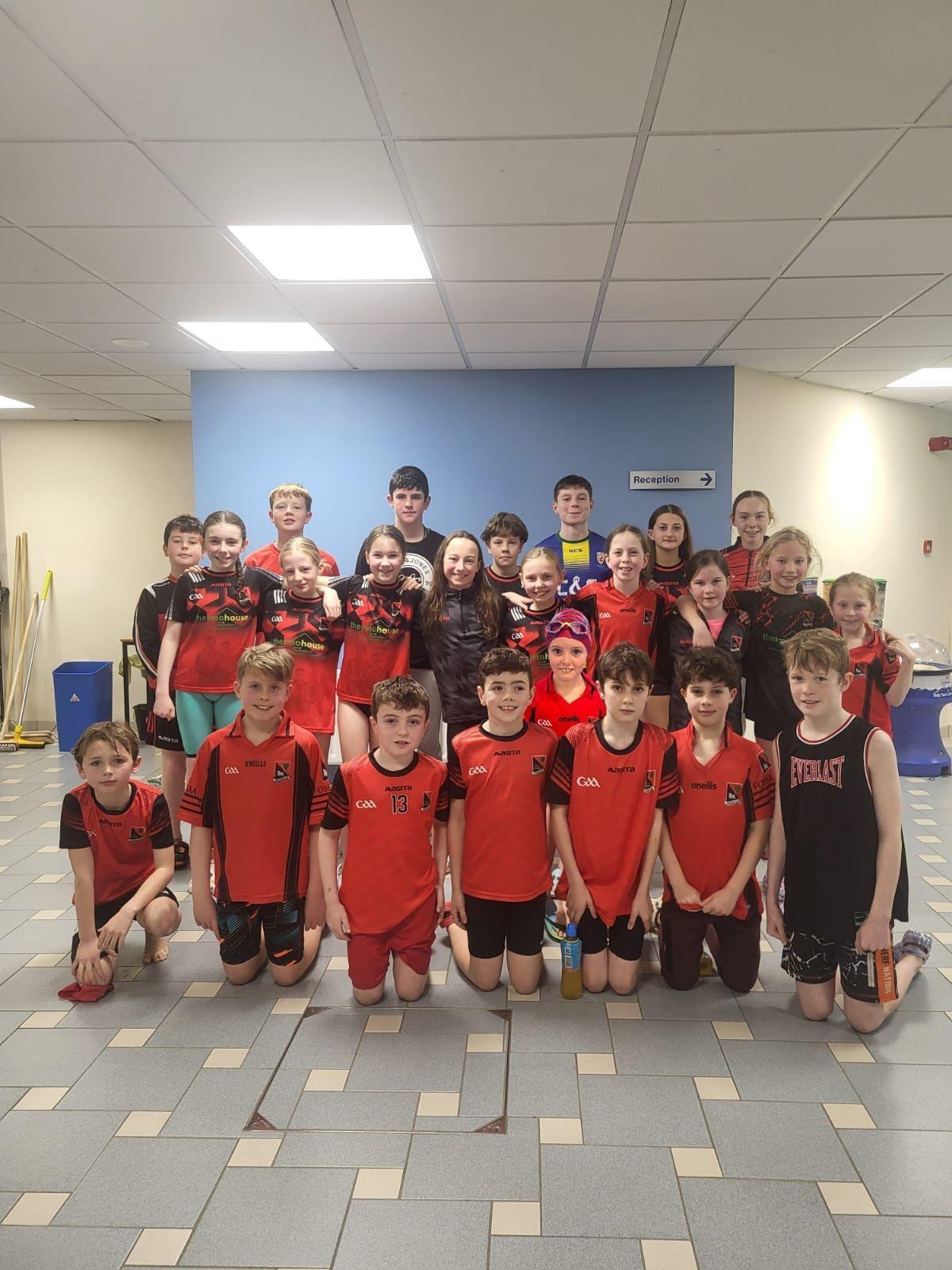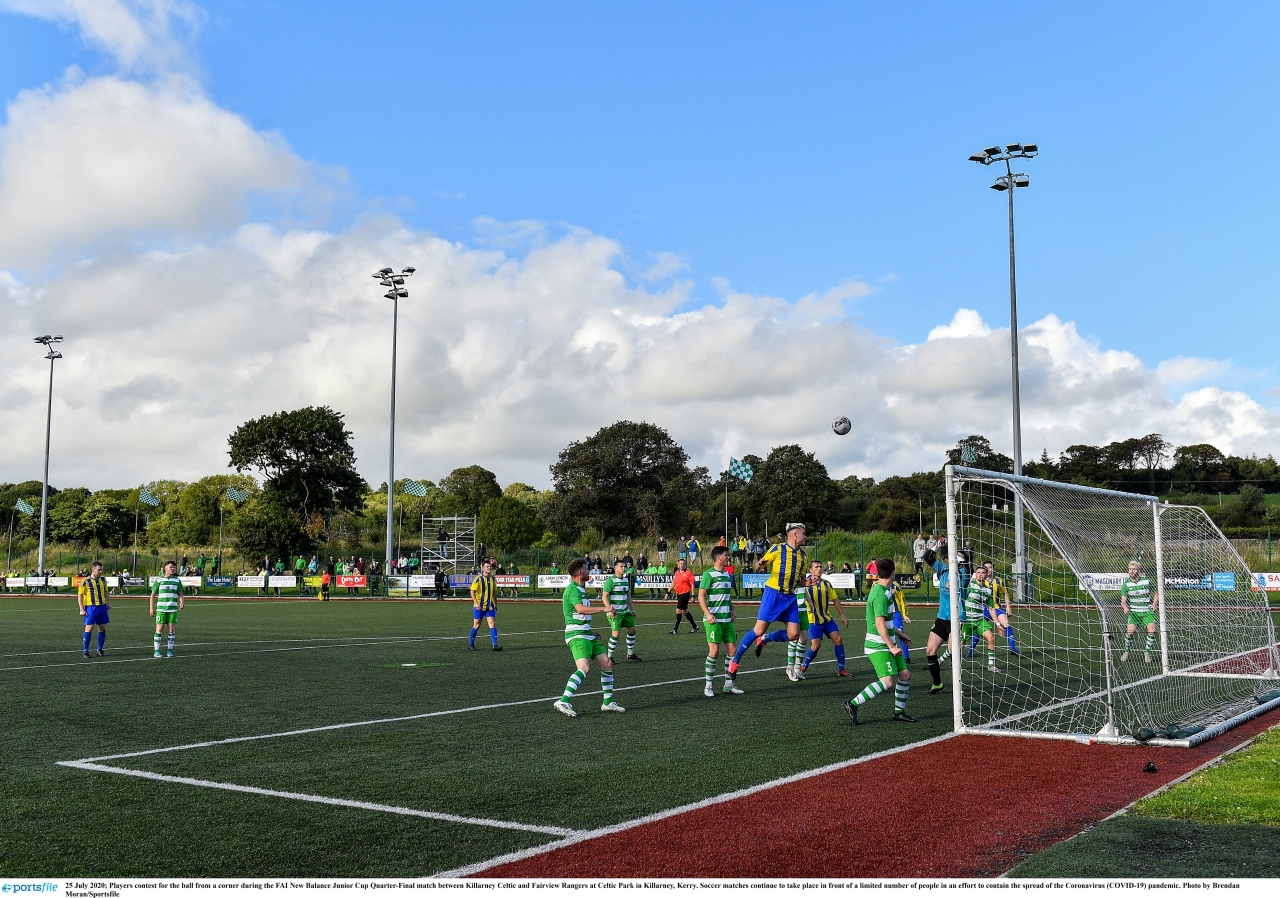Sport
Adam Moynihan: So many GAA rules need tidying up

Is there a sport in the world that alters its rulebook more frequently than Gaelic football? Every year when the first ball is thrown in, we’re left scratching our heads, frantically googling “GAA rule changes”, trying to come to terms with the latest updates to our playing protocol.
The changes to the advantage rule are causing consternation at the moment but the irony is that the game already has a number of laws that are either vague or poorly enforced. Below are just a few that come mind.
Surely it would make sense to iron these out before we even think about introducing further amendments.
1. Advanced mark. At its best (I would say less than 10% of the time), the advanced mark is a decent rule that rewards long-kicking and catches close to the goal. At its worst (the remaining 90% of the time), it’s a stupid rule that rewards nothing skills like short-kicking and unchallenged chest-catches. Plus, it abruptly stops the play for no good reason.
Of all the rule changes in recent years, it possibly holds the title of 'most hated'. It simply has to go.
2. The tackle. You can only use one hand, but sometimes that’s a foul. You can only use an open hand, but sometimes that’s a foul. You can’t pull an opponent, but sometimes you can. You can’t push an opponent, but sometimes you can. What is a Gaelic football tackle? It’s so vague and open to interpretation. From game to game and even from tackle to tackle, you never really know what’s going to be foul and what isn’t.
It's a difficult one for rule-makers to sort out but it's not going to sort itself out, that's for sure.
3. Booking both players when there’s a wrestling match. The ball is coming up the field. As the play approaches, a corner forward and a corner back become entangled and end up rolling around on the ground. Who do you think initiated that contact? Who has something to gain from that wrestling match? It’s almost always the defender. Is the forward supposed to go limp and play dead like they're being attacked by a grizzly bear?
They have to stand up for themselves, and they shouldn’t be booked for doing so.
4. Feigning injury. The law states that attempting "to achieve an advantage by feigning a foul or injury” is a bookable offence. While the "foul" part can be tricky to spot on the fly, the latter half of the rule is generally far more black and white. Thankfully, players flopping to the ground and holding their faces when they’ve barely been touched is less prevalent in Gaelic football than it is in other sports, but it does happen. Yet how many yellow cards have been brandished for this infraction?
The shame of getting booked for playacting would be a huge deterrent and help stamp this behaviour out for good. It should be punished to the letter of the law.
5. Moving frees too far forward for dissent/impeding the kick. When a free is awarded, the penalty for dissent or impeding/slowing down the taking of the free is 13 metres. How many times have we seen an over-zealous referee bring the ball forward 20 metres or more?
I recall playing a minor game for Legion out in Rathmore. I committed a foul outside of our 65-metre line. For questioning the call, the ref carried the ball forward well inside our 45. For questioning the distance, he brought it in – and this isn’t a joke or an exaggeration – to the 13-metre line. That’s roughly 55 metres of a penalty instead of 26.
That's an extreme example, granted, but even a five-metre bonus out the field could change the course of a match.
6. Hop balls. From the throw-in at the start of each half, every player bar the four midfielders is meant to be inside the two 45-metre lines. A metre or two encroachment here or there isn’t the end of the world, but in the 2019 All-Ireland final we saw what happens when the rule isn’t properly enforced. At the beginning of the second half, there were two extra players within the 65s by the time David Moran touched the ball down. Another six were just about to enter. One of those six, Eoin Murchan, gathered possession and scored a season-defining goal.
If a rugby or soccer player got away with being 20 metres offside from a kick-off, the referee would be demoted to the lower leagues in a flash.
Hop balls during open play are even messier. The players not contesting should be 13 metres away from the referee. The most you’d normally get is five, and that’s if the referee makes a big song and dance about it. By the time the ball reaches its apex there is invariably a sea of bodies awaiting its return to earth, and the resulting maul is anything but pretty.
Allowing the two nominated players to properly compete for the hop ball would lead to a greater possibility of clean possession, and some football as opposed to a spot of rugby.
7. Steps. Speaking of that Eoin Murchan goal… (No, I will not let it go.) The manner in which players travel with the ball is one of the most fundamental aspects of Gaelic football, yet it is arguably the least properly policed. Four steps is the rule. Four steps before you have to release the ball or hop or solo. But, of course, the inside joke is that it’s not four, is it? Not really. Sometimes five is okay. Sometimes six. You’d get away with seven. Maybe eight. Possibly nine. Ten? Ten is taking liberties. But yes, you could feasibly get away with ten as well.
Stringently enforcing this particular law might seem like a potential nightmare because players are so used to getting away with five or more steps. It would certainly prove contentious at the beginning, but everyone would adjust.
As it stands, it’s just another half-enforced rule that makes you wonder why they bothered writing it down in the first place.
News
Fossa Swimmers make a splash at County Finals
The Fossa Swim team pictured at the Tralee Sports Complex following their successful outing at the County Finals of the Community Games on Sunday, February 15. The 25-strong squad delivered […]
News
On the Ball Part 2 of the Mikey Daly Interview
Éamonn Fitzgerald EF: Killarney Celtic are invited to participate in an Irish competition. That has big financial implications for travel, meals, etc. MD: It is great to be invited, showing […]



















